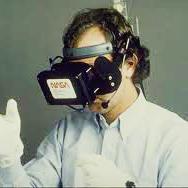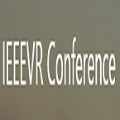Virtual reality (VR) is known to cause a "time compression" effect, where the time spent in VR feels to pass faster than the effective elapsed time. Our goal with this research is to investigate if the physical realism of a VR experience reduces the time compression effect on a gas monitoring training task that requires precise time estimation. We used physical props and passive haptics in a VR task with high physical realism and compared it to an equivalent standard VR task with only virtual objects. We also used an identical real-world task as a baseline time estimation task. Each scenario includes the user picking up a device, opening a door, navigating a corridor with obstacles, performing five short time estimations, and estimating the total time from task start to end. Contrary to previous work, there was a consistent time dilation effect in all conditions, including the real world. However, no significant effects were found comparing the estimated differences between the high and low physical realism conditions. We discuss implications of the results and limitations of the study and propose future work that may better address this important question for virtual reality training.
翻译:虚拟现实( VR) 已知会产生“ 时间压缩” 效果, VR 花费的时间比有效时间快。 我们的研究目标是调查VR 经验的物理真实性是否减少了需要精确时间估计的气体监测培训任务的时间压缩效应。 我们在VR 任务中使用了物理道具和被动机能,而物理现实性高,将其与标准VR 任务相比,只有虚拟物体。 我们还使用一个相同的真实世界任务作为基线时间估计任务。每种情况都包括用户捡起一个装置,打开门,在走廊上设置障碍,进行5个短时间估计,以及估计任务开始到结束的总时间。与以往的工作相反,在所有条件下,包括现实世界,都有一个一致的时间拉差效应。然而,没有发现任何重要效果可以比较高物理现实性条件和低实际现实性条件之间的估计差异。我们讨论研究结果和局限性的影响,并提出未来工作可以更好地解决虚拟现实培训的这一重要问题。




